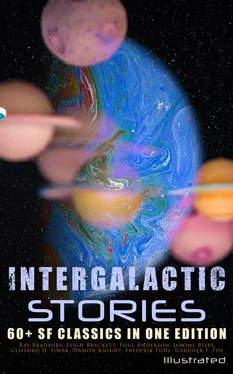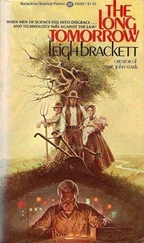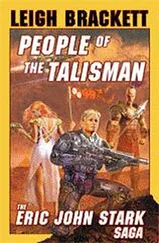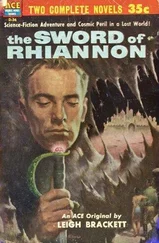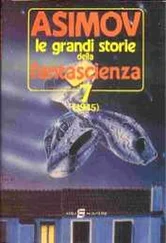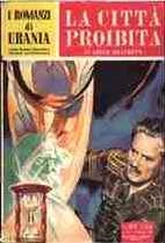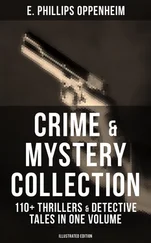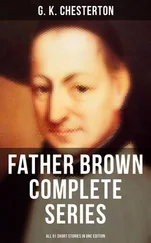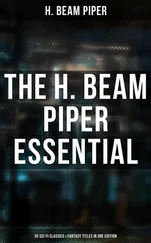Camar had done with talking. Stark knew that he had not long to wait. The wind spoke with the voice of a great organ. The moons had set and it was very dark outside the tower, except for the white glimmering of the snow. Stark looked up at the brooding walls, and shivered. There was a smell of death already in the air.
To keep from thinking, he bent closer to the fire, studying the lens. There were scratches on the bezel, as though it had been held sometime in a clamp, or setting, like a jewel. An ornament, probably, worn as a badge of rank. Strange ornament for a barbarian king, in the dawn of Mars. The firelight made tiny dancing sparks in the endless inner facets. Quite suddenly, he had a curious feeling that the thing was alive.
A pang of primitive and unreasoning fear shot through him, and he fought it down. His vision was beginning to blur, and he shut his eyes, and in the darkness it seemed to him that he could see and hear....
* * * * *
He started up, shaken now with an eerie terror, and raised his hand to hurl the talisman away. But the part of him that had learned with much pain and effort to be civilized made him stop, and think.
He sat down again. An instrument of hypnosis? Possibly. And yet that fleeting touch of sight and sound had not been his own, out of his own memories.
He was tempted now, fascinated, like a child that plays with fire. The talisman had been worn somehow. Where? On the breast? On the brow?
He tried the first, with no result. Then he touched the flat surface of the lens to his forehead.
The great tower of stone rose up monstrous to the sky. It was whole, and there were pallid lights within that stirred and flickered, and it was crowned with a shimmering darkness.
He lay outside the tower, on his belly, and he was filled with fear and a great anger, and a loathing such as turns the bones to water. There was no snow. There was ice everywhere, rising to half the tower's height, sheathing the ground.
Ice. Cold and clear and beautiful—and deadly.
He moved. He glided snakelike, with infinite caution, over the smooth surface. The tower was gone, and far below him was a city. He saw the temples and the palaces, the glittering lovely city beneath him in the ice, blurred and fairylike and strange, a dream half glimpsed through crystal.
He saw the Ones that lived there, moving slowly through the streets. He could not see them clearly, only the vague shining of their bodies, and he was glad.
He hated them, with a hatred that conquered even his fear, which was great indeed.
He was not Eric John Stark. He was Ban Cruach.
The tower and the city vanished, swept away on a reeling tide.
He stood beneath a scarp of black rock, notched with a single pass. The cliffs hung over him, leaning out their vast bulk as though to crush him, and the narrow mouth of the pass was full of evil laughter where the wind went by.
He began to walk forward, into the pass. He was quite alone.
The light was dim and strange at the bottom of that cleft. Little veils of mist crept and clung between the ice and the rock, thickened, became more dense as he went farther and farther into the pass. He could not see, and the wind spoke with many tongues, piping in the crevices of the cliffs.
All at once there was a shadow in the mist before him, a dim gigantic shape that moved toward him, and he knew that he looked at death. He cried out....
It was Stark who yelled in blind atavistic fear, and the echo of his own cry brought him up standing, shaking in every limb. He had dropped the talisman. It lay gleaming in the snow at his feet, and the alien memories were gone—and Camar was dead.
After a time he crouched down, breathing harshly. He did not want to touch the lens again. The part of him that had learned to fear strange gods and evil spirits with every step he took, the primitive aboriginal that lay so close under the surface of his mind, warned him to leave it, to run away, to desert this place of death and ruined stone.
He forced himself to take it up. He did not look at it. He wrapped it in the bit of silk and replaced it inside the iron boss, and clasped the belt around his waist. Then he found the small flask that lay with his gear beside the fire and took a long pull, and tried to think rationally of the thing that had happened.
Memories. Not his own, but the memories of Ban Cruach, a million years ago in the morning of a world. Memories of hate, a secret war against unhuman beings that dwelt in crystal cities cut in the living ice, and used these ruined towers for some dark purpose of their own.
Was that the meaning of the talisman, the power that lay within it? Had Ban Cruach, by some elder and forgotten science, imprisoned the echoes of his own mind in the crystal?
Why? Perhaps as a warning, as a reminder of ageless, alien danger beyond the Gates of Death?
Suddenly one of the beasts tethered outside the ruined tower started up from its sleep with a hissing snarl.
Instantly Stark became motionless.
They came silently on their padded feet, the rangy mountain brutes moving daintily through the sprawling ruin. Their riders too were silent—tall men with fierce eyes and russet hair, wearing leather coats and carrying each a long, straight spear.
There were a score of them around the tower in the windy gloom. Stark did not bother to draw his gun. He had learned very young the difference between courage and idiocy.
He walked out toward them, slowly lest one of them be startled into spearing him, yet not slowly enough to denote fear. And he held up his right hand and gave them greeting.
They did not answer him. They sat their restive mounts and stared at him, and Stark knew that Camar had spoken the truth. These were the riders of Mekh, and they were wolves.
Table of Contents
Stark waited, until they should tire of their own silence.
Finally one demanded, "Of what country are you?"
He answered, "I am called N'Chaka, the Man-Without-a-Tribe."
It was the name they had given him, the half-human aboriginals who had raised him in the blaze and thunder and bitter frosts of Mercury.
"A stranger," said the leader, and smiled. He pointed at the dead Camar and asked, "Did you slay him?"
"He was my friend," said Stark, "I was bringing him home to die."
Two riders dismounted to inspect the body. One called up to the leader, "He was from Kushat, if I know the breed, Thord! And he has not been robbed." He proceeded to take care of that detail himself.
"A stranger," repeated the leader, Thord. "Bound for Kushat, with a man of Kushat. Well. I think you will come with us, stranger."
Stark shrugged. And with the long spears pricking him, he did not resist when the tall Thord plundered him of all he owned except his clothes—and Camar's belt, which was not worth the stealing. His gun Thord flung contemptuously away.
One of the men brought Stark's beast and Camar's from where they were tethered, and the Earthman mounted—as usual, over the violent protest of the creature, which did not like the smell of him. They moved out from under the shelter of the walls, into the full fury of the wind.
For the rest of that night, and through the next day and the night that followed it they rode eastward, stopping only to rest the beasts and chew on their rations of jerked meat.
To Stark, riding a prisoner, it came with full force that this was the North country, half a world away from the Mars of spaceships and commerce and visitors from other planets. The future had never touched these wild mountains and barren plains. The past held pride enough.
To the north, the horizon showed a strange and ghostly glimmer where the barrier wall of the polar pack reared up, gigantic against the sky. The wind blew, down from the ice, through the mountain gorges, across the plains, never ceasing. And here and there the cryptic towers rose, broken monoliths of stone. Stark remembered the vision of the talisman, the huge structure crowned with eerie darkness. He looked upon the ruins with loathing and curiosity. The men of Mekh could tell him nothing.
Читать дальше
